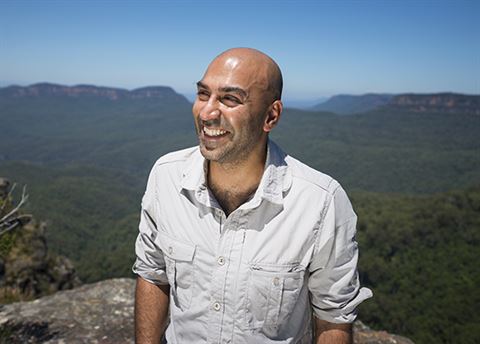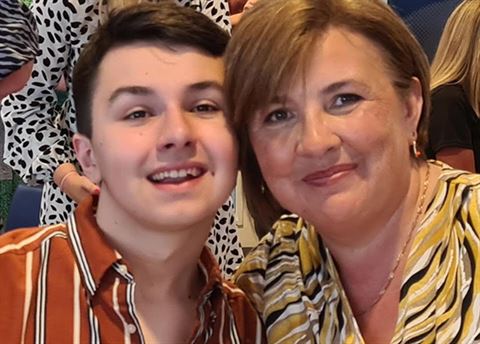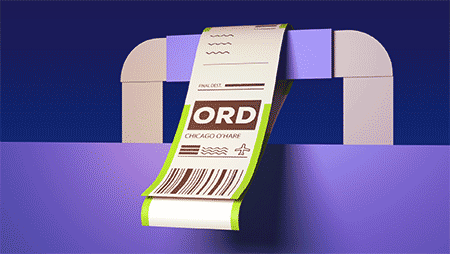BA BETTER WORLD • December 2023
How to be a better traveller in 2024
If there’s one travel trend that never gets old, it’s empathy. That’s why we’ve asked a select group of travellers who know a thing or two about adversity and overcoming it – a group whose unique perspective and experience can help guide us to kinder and more conscious choices as we continue to travel the world together
How to help… someone with an invisible illness
By Julia Buckley, freelance journalist
I’m one of many people in the UK with an invisible disability, for whom travelling can be physically very challenging and tiring. Standing in long lines can put me out of action for hours, if not days. Show compassion and be patient and kind to those with chronic conditions, for example, by giving up your seat to someone who may need it more or listening out for people who need assistance. I once helped a woman at Gatwick whose wheelchair had been broken in transit, staying with her until a supervisor provided a replacement. We kept in touch for years. Just ask yourself: how would you like to be treated if you were in that situation?

How to help… an amputee
By Sian Lord, motivational speaker and model
Back in 2013, I had a leg amputation after being hit by a yellow cab while on a girls’ holiday in NYC. Thinking about travelling after this event was scary but, after a while, I couldn’t wait to fly again. First, I went into a travel agent and learned I could book accessibility assistance, which is so helpful, especially when visiting large airports or having connecting flights. I ask British Airways staff to help with my hand baggage and for cabin crew to let me know when there’s no queue for the toilet, which they are always happy to do. If I’m flying long haul, it’s also helpful to book a seat with extra leg room as I like to take off my prosthetic and rest. My advice is don’t be afraid to interact: a lovely Dutch woman came over to me at breakfast while I was on holiday in Dubai and said that she had found it so refreshing watching how body confident I was and how much she loved that I changed my prosthetic to match my outfits. It made my day!

How to help… someone with sight loss
By Amir Latif OBE, founder of Traveleyes
When travelling, many people worry about saying or doing the wrong thing to blind or partially sighted passengers, but it’s truly appreciated when someone asks one simple thing: “Can I help?” When navigating back from the bathroom at 35,000 feet, it’s incredibly helpful when someone tells me that I’m approaching my seat, preventing any unexpected detours – like accidentally ending up in the cockpit! For extra brownie points, try assisting with the on-board screen or telling me what’s on my delicious food tray. Small gestures of consideration like this, whether they end up helping or not, are so valued and a particularly strong message from us at Traveleyes, as we know first-hand how it can significantly improve the experience of everyday life.

How to help… a traveller on the autism spectrum
By Rebecca Taylor, founder of autism support group Learning Rose
When my son and I are out and about, whether that’s shopping in town or on public transport, he makes sure he wears his sunflower lanyard – a universal sign that helps people identify easily that he has specific needs. Recognising the lanyard is step one, as people knowing about it often makes tricky situations so much easier to deal with. Since noise and activity can be very overstimulating for people with autism, giving them time and space is crucial. What also helps is to speak in short, calm sentences, as too many words can be hard to process. I remember once during lockdown that my son was becoming agitated due to the queues outside shops, which caught the attention of a nearby police officer. He came over and spoke to my son really calmly, told him the local park was open if he wanted to go and play a game of football and completely diverted him and cooled the situation.

How to help… someone with hearing loss
By Jazzy Whipps, deaf content creator and campaigner
For me, what first comes to mind when travelling is announcements. Deaf travellers can often get anxious about missing a flight or train, as announcements are simply not accessible to us. As such, we need to find a member of staff (and then have the challenge of trying to communicate with them in order to have any questions answered). It’s either that or searching frantically online for any travel updates. It would be amazing if all travel announcements at airports could be accessible to deaf people, by possibly having announcement screens with subtitles. It would be great if more people knew basic British Sign Language, so they could communicate with deaf people when they travel. What you can also do is use your mobile screen to communicate with each other.

This article has been tagged BA BETTER WORLD, Travel Tips
More from previous issues

Epic drives: Las Vegas and beyond
The month may be all about the Vegas Grand Prix, but there are plenty of other remarkable roads to explore in the area

My Club: the Michelin chef
Asimakis Chaniotis shares his passion for Greek cuisine and British Airways

Cracking the world’s most mysterious airport codes
Discover the brilliant stories behind some of the more perplexing three-letter codes

The Club’s big Christmas checklist
The British Airways shopping portal has every retailer imaginable to fulfil your Yuletide needs – and you could collect enough Avios to fuel a 2024 trip, too…